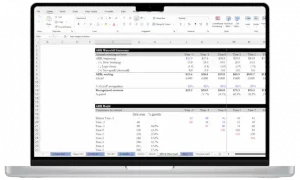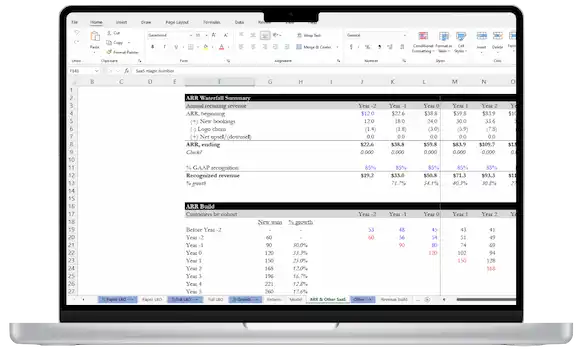Why growth equity is attractive
Unlike venture capital and buyout, growth equity is an appealing form of investing to many prospective applicants because it offers the chance to invest in businesses that are fast-growing AND are established enough to allow quantitative analysis and financial modeling during diligence.
Many also believe the “growth stage” of investing can offer an attractive risk-reward profile, since companies typically have de-risked significantly since their early venture fundraising rounds, have strong momentum, and (ideally) still have significant upside remaining.
On the other side of the table, growth equity capital can be an attractive fundraising option for entrepreneurs and founders of companies since growth equity investors typically take non-controlling, minority stakes with limited governance rights. As such, the owners will not be required to give up control.
Also, growth equity capital offers management teams of private firms the chance to defer going public (an arduous process) or get liquidity, without the huge dilution seen in earlier rounds.
“Why growth equity” interview question
The “why growth equity” interview question is a very common one. If you’re interviewing for growth equity roles, there are many behavioral and standard fit interview questions you are likely to get, but perhaps none is as likely as the “why growth equity” interview questions.
In a multiple interview or “superday” interview process, you may be asked this in every conversation you have, or perhaps in just one. Regardless, there’s nearly 100% odds you’ll be asked this at least once. That’s why you’ll want to have a good and authentic answer prepared in advance.
What your interviewer is testing
More than anything, your interview is looking for authentic excitement for the role you are interviewing for!
Let’s break that down a bit. In asking the why growth equity interview question, your interviewer is likely trying to ascertain the following components of your passion:
- Do you know what you’re interviewing for? As with any job, if you haven’t done the baseline research to know what the job is (and why you’re excited about it), it’s impossible to know if it’ll be a good fit for you (or your employer) over the long-run.
- Do you have an authentic interest and excitement for growth equity? It’s critical to have passion in order to excel at something; there’s no way you’ll actually be good in a role over the long-term if you aren’t actually excited about it.
- Conversation starter? I know this may be surprising, but sometimes, your interviewer is simply breaking the ice with you and trying to get to know you a bit.
Notice one thing I didn’t include above: do you have the best and most compelling story about why growth equity. You don’t have to make the best logical argument as to why you should work in growth equity. This is a common trap.
Instead, the interviewer is going to listen to your story and make sure the reasons make sense generally, but they aren’t going to be scoring your reasons for wanting to do growth equity “on points.”
In this way, the interviewer is going to scan your answer here a little bit like how they review a resume. It’s going to be fast, maybe 90 seconds or less, and they are just looking for the major key points. You don’t need to overthink it or come up with the best reasons ever for this. Just come up with something that is authentic to you and that makes sense – and deliver it with excitement!
What is the difference between growth equity and buyout?
One angle of the why growth equity interview question you should consider ahead of time is how growth equity differs from private equity, and why that appeals to you. Let’s walk some possible angles now.
- Invest in fast growing sectors – growth equity tends to invest in leading companies in the fastest growing markets. Compare this to private equity, which tends to take controlling stakes in solid companies but ones in slower growth industries. I spoke about this reason specifically in my interviews. I said something along the lines of “I’d rather invest in companies that are growing and innovating, rather than slow growth industrials or plastics companies” – the latter of which I had some exposure to in investment banking, so I could speak to this credibly.
- Make money from growth, not debt – along these lines, you can also talk about the fact that because you are investing in high growth companies, you do not need to rely on debt to achieve adequate returns. You may not be against debt for all companies per se, but perhaps it’s just more exciting or rewarding for you to make money by helping companies grow.
- Exposure to operations and best-in-class managers – even though growth equity typically entails a minority (e.g. 10%) ownership stake in each company, there is still a role for the firm to have influence with management (who is at the cutting edge of their industry) and to get involved in the operations (usually, strategic advisory or M&A support).
- Spirit of collaboration with management teams – because target firms usually have ample options during fundraising, growth equity firms usually cultivate a friendly and collaborative relationship with management teams in order to win the deal and to gain influence once they have. Not always, but this can be the opposite of the dynamic between private equity and their management teams. It is usually the case that private equity firms purchase a controlling stake (often of under-performing companies). As a result, private equity firms can have a contentious relationship with management (if they haven’t replaced them with their own handpicked team already).
What is the difference between growth equity and venture capital?
Just like with private equity, you can also approach the why growth equity interview question from the perspective of comparing it to opportunities in early stage venture capital. You should be prepared to discuss how growth equity is different than venture capital, and why these differences are attractive to you. Some possible responses:
- Invest in proven products and business models – being later stage, growth equity firms are typically investing in companies with products and business models that are more mature than early stage startups. It may be more interesting to you to help scale a product or company that is working, rather than running experiments with your dollars to figure out if a product or company will work at all at the early stage
- Different financial risk-reward profile – I’m not sure I’d lead with this in your answer, but it is true that traditionally early stage venture capital (as a whole) has been a worse performing asset class than the later stage growth and private equity asset classes. It’s true that the absolute best venture capital funds (e.g. Sequoia or Benchmark) have amazing returns, but as a whole venture has done worse and that may be something you want to consider as you design your career – you are becoming an investor after all!
- Different ways to add value with your dollars – one way that growth equity investments differ from early stage ones is that your investment dollars are typically going toward helping scale or grow the company, rather than funding efforts to find product market fit. There are many different ways to scale, including M&A or international expansion. These are things you can help your portfolio companies to do in growth equity that would not be as common or realistic in early stage investments.

- 88 lessons
- 18 video hours
- Excels & templates
What about sourcing (or prospecting) investments?
One common thing for firms to suss out is whether you understand you may do sourcing – or as some call it “prospecting” – and whether you’re comfortable doing so. Sometimes there is even a mock cold call in your growth equity interviews – which I discuss in my free growth equity case study guide and in my full growth equity interview prep course – but even if not, you could be asked about your comfort level through other questions like “why growth equity”.
The lifeblood of any growth equity firm — indeed, any investment fund — is the quality of their investment pipeline. This is definitely true for growth equity firms, who live and die by the quality of their “proprietary” deal flow. Sourcing can be cold-calling, but it also includes going to industry conferences, scouring company lists, other research, etc. It’s basically any activity that leads to building relationships with new companies in hopes of finding new investment opportunities.
Admittedly, some can be scared away from growth equity opportunities because they’ve heard about sourcing and think they will be cold-calling all day. I think that’s the wrong way of looking at it, but that having been said, it’s certainly not for everyone. No matter your seniority level, as a growth equity investor, you’ll almost certainly be expected to participate in sourcing activities in some way. This is especially true for the most junior of investment professionals, though. In fact, often the primary job of analysts just out of undergrad is to do sourcing.
The positive spin on sourcing is that it empowers all investment professionals to think creatively, to create investment theses, and to develop relationships with management teams. Paradoxically, the more senior you get as an investor the job is all about sourcing. You may not be cold calling anymore, but as a senior partner, your job is to sell your firm and win over entrepreneurs.
From the earliest stages of your career, if your job allows for some sourcing, you can start to hone these skills. It’s invaluable if you can develop these skills now. While I wouldn’t personally be a fit for a role that is 100% sourcing, I think there is lots to be gained from doing a role in growth equity that allows for and values significant sourcing from junior or mid-level professionals.
Crafting your answer to “Why Growth Equity”
As with any interview answer, authenticity is a must. Everyone’s story is different, and this is going to sound cheesy, but it is really important to find areas/themes that are authentic to you. I promise it is obvious when someone is reading from a script they tailored precisely to the audience!
Why do you actually want to do growth equity? Start there, and see what comes up for you.
Themes to consider
If you need some help brainstorming, here are some themes that I’d recommend exploring and touching on in some way if they are authentic to you. In my experience, these seem to go a long way with recruiters/funds:
- Love for investing – if you can go in and talk/sound like a “markets guy or gal” funds love that! Their ideal is someone who is obsessed with investing and trading, and they trade stocks on their own time for fun.
- Excitement about GROWTH equity – have a clear case/story for why growth equity and not private equity. Some common refrains here are the ability to work with exciting companies, the purity of investing without excessive debt, the ability to work/partner closely with the company, the chance to get closer to the operational aspects of running a company, etc.
- Hustle! – similar to banking/consulting interviews you need to show an excitement for and willingness to run through walls. However, the caveat here is you need to convey it in ways that show you have polish and an understanding of the role. For example, one way to intimate this is to discuss how you’re excited to own all aspects of the deal, not just running the analysis (which you actually do enjoy doing) but also coordinating diligence and being a part of the sourcing process.
Draw on college experiences, classwork, extracurriculars, and work experience for your anecdotes for these.
Themes to avoid
To put your best foot forward, there are a few areas that I’d recommend you avoid in your answer. Consider these areas – even if they authentically contribute to your desire to do growth equity – as being self-evident, and therefore not worth talking about. Remember one of the key parts of growth equity is showing you can present well and have a good sense of what should and shouldn’t be said aloud in meetings. As such, avoid these areas:
- Strong compensation – focus on reasons why the work itself appeals to you, rather than the topic of money, which is taboo to discuss (yes, even in financial job interviews)
- Better work life balance than private equity and investment banking – this may or may not even be true, depending on the firm, but in any growth equity interview I recommend leading with reasons the job itself is of interest to you, rather than reasons indicating you’re excited to get balance away from that work
- Exit options after growth equity – while it is true that after growth equity you can have attractive (and diverse) career opportunities, don’t lead with this in your interviews. Focus on why you want to do this job, not the next one.
Make-or-break importance?
The why growth equity question is what I call a “check the box” interview question. That is, you need to answer it well, but even if you have an amazing answer, it’s very unlikely that this answer will make the crucial difference in getting you the job.
This is another reason why I recommend candidates practice a brief answer that gives pithy and authentic reasons for wanting to do growth equity, but lasts only 60-90 seconds. The most important thing is you show your EXCITEMENT for growth equity!
In this way, keep it concise, and allow the interviewer to double click on any threads as desired. What you should avoid is going on and on for 5 minutes (or longer) about a question that isn’t all THAT important to the interviewer anyway.
Just remember: this question alone likely won’t win you the job, but a poor answer here could prevent you from getting the job.
Summary
- Keep it pithy, 60-90 seconds; let the interviewer ask for more
- The interviewer is testing if you know what the role is, and have a few compelling reasons for why you want to do it
- This question alone likely won’t get you the job, but a bad answer could prevent you from getting the job.
- Discuss authentic reasons for wanting to do growth equity. Fruitful areas to brainstorm can be: (i) love for investing, (ii) passion for growth vs. private equity or early stage venture capital, (iii) hustle!
- Areas to almost always avoid in your answer are: (i) compensation, (ii) better work life, (iii) exit options


 Break Into Growth Equity
Break Into Growth Equity
